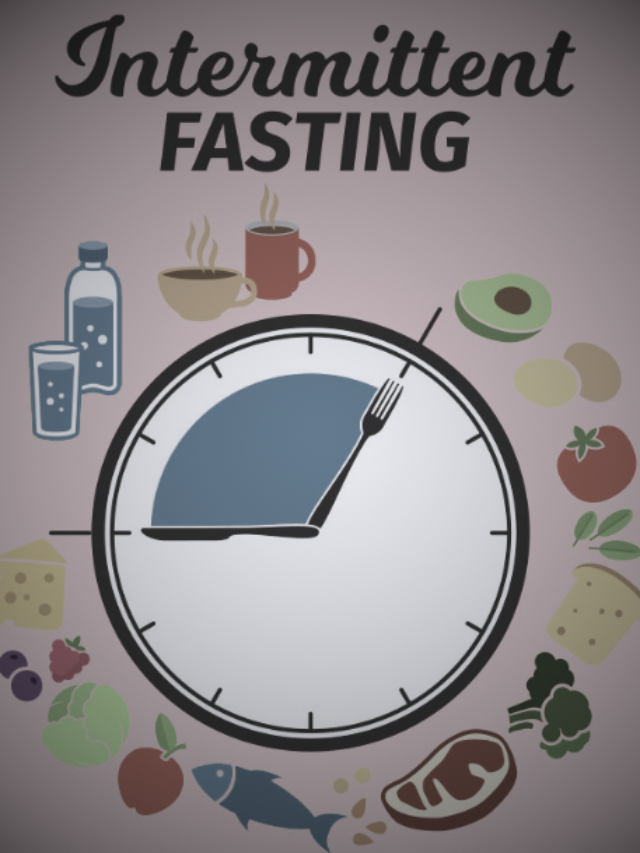Intermittent fasting has become the subject of much media enthusiasm as a consequence of the potential health benefits it can provide. They include weight loss, metabolic health, and life extension, among other things. Although this craze spread quickly, fears of fainting in the course of fasting became a real threat.
What is Intermittent Fasting?

Intermittent fasting encompasses the practice of alternating among durations of eating and fasting. Prominent processes encompass the 16/8 method, which includes fasting for sixteen hours and eating meals inside an eight-hour timeframe, the 5:2 technique, in which individuals eat generally for five days and limit their calorie consumption for two non-consecutive days, and alternate-day fasting.
Fasting is characterized by the transition from glucose being the primary source of energy the body utilizes to stores fats. This metabolic state is believed to start several positive effects on the body, including better fat burning, more sensitive insulin, and the increased elimination of cellular repair processes such as autophagy.
Intermittent fasting is a dietary schedule that can boost cardiovascular health, lower inflammation, alter how cells restore themselves, and promote fat burning.
Benefits of Intermittent Fasting

Can help you lose weight : Intermittent fasting is an extremely effective technique to lose weight and decrease visceral fat. Although it reduces the amount of food consumed, it also boosts metabolism somewhat.
Can reduce insulin resistance : Intermittent fasting could reduce insulin resistance and lower blood sugar levels, especially in males .
Can reduce oxidative stress and inflammation in your body : Intermittent fasting may also lower the damage caused by the oxidation and inflammation in one’s body, offering many aging-related benefits and assisting in the prevention of numerous diseases .
May be beneficial for heart health : Intermittent fasting could enhance several risk factors for heart disease, such as blood pressure, cholesterol, triglycerides, and inflammatory markers .
Has benefits for your brain :
Intermittent fasting has the potential to offer significant advantages for brain health. It may stimulate the growth of new neurons and protect the brain from damage.
The Fainting Fears
There isn’t any scientific proof to suggest that fainting is either caused or is the direct effect of the decline relationship with intermittent fasting—as there haven’t been many reported experiences. The most likely answer is that it’s from dehydration, low blood sugar, or another similar issue rather than a term one.
Dehydration is the most common cause of fainting while fasting. When the body lacks enough fluids, blood volume falls; low blood pressure develops, resulting in dizziness, lightheadedness, and fainting . Secondly, fasting for a severe length of time causes low blood sugar. High resistance and diabetes are most common in insulin-resistant people and diabetics.
Factors That Influence Fainting Risk

Stay Hydrated : Focus should be put on proper hydration during the fasting state to maintain blood volume and ensure good perfusion. Water can be consumed in a more regular intake format throughout the day, and electrolyte-containing beverages like diluted sports drinks or herbal teas will help to restore the lost minerals.

Balanced Nutrition : It is crucial to continue consuming nutrient-dense foods that provide lasting energy and help maintain consistent blood sugar levels. Preference should be given to lean proteins, healthy fats, fiber-rich vegetables, and complex carbohydrates. This way, fasting will only improve one’s overall condition and not lead to sudden energy drops.
Also, pay close attention to the signals your body sends you, and adjust your fasting method. If dizziness, weakness, or lightheadedness occurs, immediately stop fasting and eat a small balanced meal. If these symptoms do not go away on their own or even increase, it is worth seeking the advice of a doctor.
Tips for Safe Intermittent Fasting
Start Slowly :
Additionally, when starting intermittent fasting, beginners should select shorter fasting hours and increase them as time goes by. In this way, the body will adapt smoothly to the new changes and decrease the risks of collapsing.
It is recommended to explore multiple types of technique and select the one that seems fitting to embrace on a daily basis. Therefore, there is no best solution, so choose the most effective one for your needs.

Fainting while intermittent fasting can indeed be a real issue for some people, but it is essential to draw a line between real risks and common rumors and practice fasting with caution and consideration. Keeping well hydrated, maintaining a healthy and varied diet, and listening to how your body responds can all help you reap the potential benefits of intermittent fasting while preventing fainting and other threats.
Read more – Is there any Healthy Snacks under 100 Calories ?
Frequently Asked Questions
Is it normal to feel dizzy or lightheaded during intermittent fasting?
The sensation of dizziness or lightheadedness is common to come across while starting to fast or entering a protracted fasting period. Dizziness and lightheadedness are most often associated with dehydration, low blood sugar levels, or changes in blood pressure. However, if you feel extremely weak due to these signs, you need to take your doctor’s recommendation.
How can I prevent fainting during intermittent fasting?
To reduce the risk of fainting during intermittent fasting, the correct water balance should be maintained, which is guaranteed by constant drinking. Additionally, during the time allotted for eating a normal diet , it is advisable to cover a variety of food groups, including proteins, healthy fats, vegetables high in fiber and complex carbohydrates. This approach will help to keep sugar levels within acceptable limits and provide the body with strength.
Should I continue intermittent fasting if I’ve fainted once?
Fainting during intermittent fasting practice is a concerning sign that calls for prompt action. In the case of such incidents, one should consider the effectiveness of their fasting approach, hydration status, and general health. Consulting with a health professional is strongly encouraged for further examination of possible predisposing factors, or contraindications, that should be addressed before initiating the practices of intermittent fasting.
Can intermittent fasting affect my blood sugar levels?
Intermittent fasting can affect blood sugar levels, particularly for people with insulin resistance or diabetes. Some people may find that intermittent fasting significantly improves blood sugar control, while others are at risk of experiencing symptoms of hypoglycemia when they do not eat. It goes without saying, but you should monitor your blood glucose very carefully and ask your doctor’s advice as necessary.





















Pingback: Does Keto Diet helps in Weight loss ?
Pingback: Kelly Clarkson Weight loss